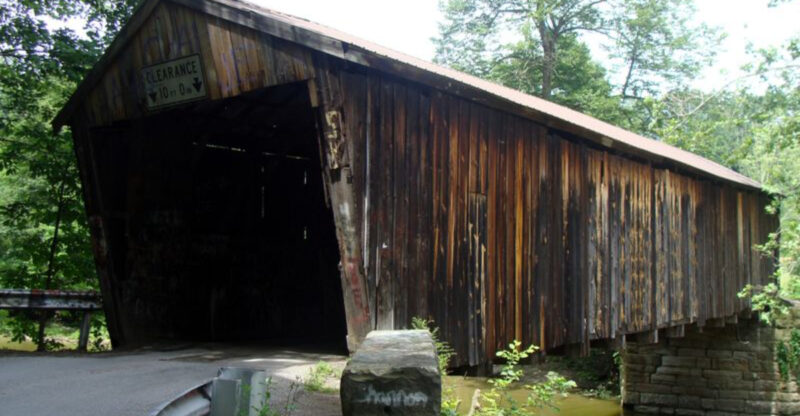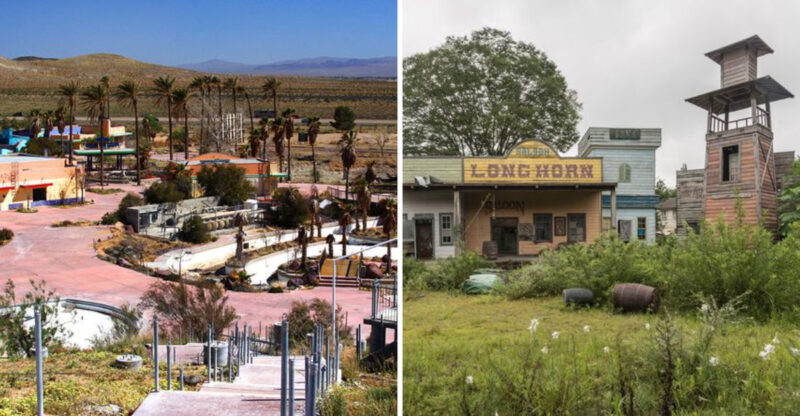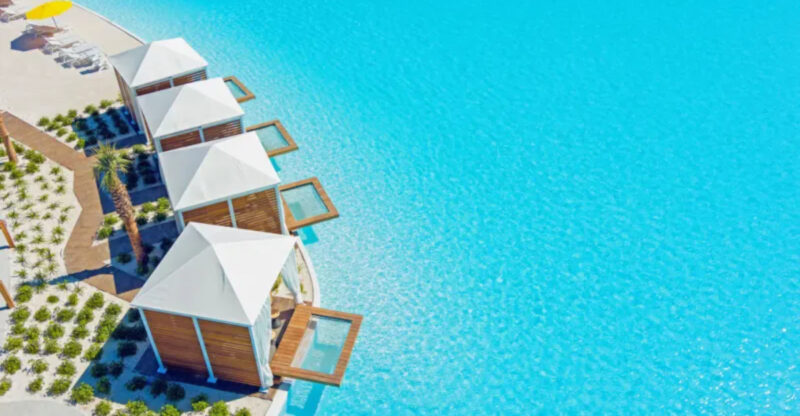Reasons California Locals No Longer Enjoy The Beaches As Much As They Used To

California’s stunning coastline has always been a source of pride for residents who grew up splashing in the waves and building sandcastles. But something has shifted in recent years, and locals are finding themselves heading to the beach far less often than before.
From crowded parking lots to rising costs and environmental concerns, the beach experience just isn’t what it used to be. Let me walk you through the reasons why so many Californians are rethinking their relationship with these once-beloved coastal spots.
1. Parking Nightmares Have Taken Over
If you’ve tried visiting Santa Monica or Malibu on a Saturday morning lately, you know the struggle is real. Parking lots fill up before 10 a.m., leaving you circling endlessly while your ice chest melts in the backseat.
Metered spots are expensive and strictly enforced, with parking officers ready to ticket you the second your time runs out.
What used to be a spontaneous decision to catch some waves has turned into a military operation requiring early wake-up calls. Many locals have simply given up on the hassle altogether. When finding a parking spot becomes harder than finding buried treasure, the beach loses its appeal fast.
2. Everything Costs an Arm and a Leg
Remember when you could grab a hot dog and a soda at the beach without taking out a small loan? Those days are long gone, my friend. Tourist-driven inflation has turned beachside snacks into luxury items, with bottles of water costing what you’d pay for a full meal elsewhere.
Parking fees have skyrocketed too, sometimes reaching twenty dollars or more for a few hours. Renting an umbrella or beach chair? Prepare to empty your wallet. It’s frustrating when a simple beach day requires budgeting like you’re planning a vacation.
Locals who remember affordable beach outings now think twice before making the trip.
3. Traffic Turns Quick Trips Into marathons
Picture this: you’re excited for a beach day, but the Pacific Coast Highway looks like a parking lot. What should be a thirty-minute drive stretches into two hours of stop-and-go frustration. Warm weekends bring out everyone, clogging the coastal roads beyond belief.
By the time you finally arrive, you’re stressed, sweaty, and wondering if it was even worth it. The return trip is often worse, with tired families all heading home at once. Some locals have calculated that they spend more time sitting in traffic than actually enjoying the sand and surf.
When the journey becomes more painful than pleasant, staying home starts looking pretty good.
4. Water Quality Has Gone Downhill
Did you know that Los Angeles County beaches regularly post health advisories due to elevated bacteria levels? Urban runoff carries all sorts of nasty stuff into the ocean, from chemicals to waste that nobody wants to think about. Swimming in contaminated water can cause ear infections, stomach problems, and skin rashes.
Beach closures have become more common, with signs warning people to stay out of the water. It’s heartbreaking when you arrive ready to swim only to find red flags everywhere. The ocean that once felt refreshing and clean now carries invisible dangers.
Many locals have stopped trusting the water quality altogether, choosing pools over potentially polluted waves.
5. Beaches Are Literally Disappearing
It’s scary to think about, but California could lose up to seventy percent of its sandy beaches by the year 2100. Climate change isn’t some distant threat anymore—it’s actively eating away at the coastline right now. The wide sandy stretches where you used to spread out your towel have shrunk dramatically in many areas.
Rising sea levels and intensified storms accelerate erosion, leaving less room for beachgoers. Some favorite spots have become almost unrecognizable, with rocks and cliffs replacing soft sand. When high tide comes in, there’s barely any beach left at all.
Watching beloved beaches vanish creates a sense of loss that makes visits bittersweet for longtime residents.
6. New Rules Make Everything Feel Restrictive
When did the beach become so full of rules? You can’t have bonfires in most places anymore, even though beach fires were a cherished tradition for generations. Dogs are banned from many beaches, disappointing pet owners who loved watching their furry friends frolic in the waves.
Alcohol restrictions, noise ordinances, and activity limitations have multiplied over the years. Sure, these regulations aim to protect the environment and manage crowds, but they also strip away the carefree feeling beaches once offered. It feels less like a public space and more like a controlled facility.
Locals miss the days when the beach felt free and spontaneous rather than regulated and monitored.
7. Affordable Overnight Options Have Vanished
How many beach campgrounds and budget motels have disappeared in the last decade? Too many to count, unfortunately. Coastal real estate has become so valuable that affordable accommodations have been replaced by luxury resorts and high-end vacation rentals. Families who used to spend weekends at the beach can now barely afford a single night.
This forces most locals into day trips only, which means battling traffic both ways and never getting that relaxed multi-day beach vacation feeling. The economic divide has made extended coastal stays a privilege for the wealthy rather than a right for all residents.
When you’re priced out of staying near the coast, your connection to it naturally weakens over time.
8. Environmental Disasters Leave Lasting Scars
Remember the devastating Orange County oil spill in 2021? Thousands of gallons of crude oil contaminated the coastline, killing wildlife and forcing beach closures for weeks. Events like this leave psychological scars that don’t heal quickly, even after the physical cleanup is complete.
Each environmental disaster chips away at people’s trust and enthusiasm for beach visits. You start wondering what invisible contamination might still be lurking in the sand or water. The natural beauty that once drew people to the coast feels fragile and threatened.
It’s hard to relax and enjoy yourself when you’re worried about what might be harming the ecosystem around you.
9. Not Everyone Can Actually Get There
Here’s something that really frustrates me: some of California’s most beautiful beaches are nearly impossible to access unless you’re wealthy or well-connected. Private property restrictions block pathways that should be public, and lack of public transportation makes it tough for people without cars.
Physical barriers like steep cliffs without proper stairs prevent elderly and disabled residents from enjoying the coast. This inequity means that beaches, which should belong to everyone, are effectively reserved for privileged groups. Communities of color and low-income families face particularly significant access challenges.
When the beach doesn’t feel like it’s truly yours to enjoy, the motivation to visit naturally decreases.
10. Tourist Behavior Has Changed the Vibe
It’s not that tourists are inherently bad—California’s economy depends on them, after all. But the sheer volume of visitors has changed the beach atmosphere dramatically. Littering has increased, with trash left behind after beach days despite available garbage cans.
Noise levels have risen too, with loud music and rowdy groups disrupting the peaceful ocean sounds locals cherish. Overcrowding means you can barely find a spot to lay your towel without being right on top of strangers. The sense of community and respect that once existed has diminished.
When your local beach feels like a theme park, the magic disappears and you stop feeling at home there.
11. Development Has Altered the Landscape Forever
Drive along the coast and you’ll notice how much construction has changed the view. Natural habitats have given way to hotels, condos, and commercial developments that block ocean views and disrupt ecosystems. Wetlands that once filtered pollution and provided homes for wildlife have been paved over.
The traditional beach experience feeling connected to nature and escaping urban life becomes impossible when you’re surrounded by high-rises and shopping centers. Some areas have lost their distinct character entirely, looking like any other overdeveloped tourist trap.
Locals who remember what the coast used to look like feel a genuine sense of mourning for what’s been lost to progress.
12. Safety Concerns Have Emerged in Certain Areas
Have you heard about the Lunada Bay Boys? This territorial surf group in Palos Verdes has been accused of intimidating and harassing visitors for decades, creating an atmosphere of fear rather than fun. While this is an extreme example, safety concerns exist at various beaches for different reasons.
Theft from cars in beach parking lots has increased, and some areas have seen upticks in aggressive behavior. When you don’t feel safe leaving your belongings or enjoying the water without worry, the beach loses its appeal as a relaxing destination.
Nobody wants to spend their day off constantly looking over their shoulder instead of watching the sunset.
13. Climate Change Brings More Extreme Weather
Beyond just erosion, climate change has made beach weather more unpredictable and sometimes dangerous. Storms have become more frequent and severe, creating hazardous surf conditions and causing property damage along the coast. What used to be reliable sunshine and gentle waves now comes with increased uncertainty.
Red flag warnings for dangerous rip currents appear more often, and beach closures due to weather have increased. Planning a beach day becomes a gamble, with conditions potentially changing rapidly. The ocean feels less friendly and more threatening than it did in previous decades.
When nature itself seems more hostile, people naturally seek safer recreational options elsewhere.
14. Trash and Debris Have Piled Up
Walking barefoot in the sand used to be pure pleasure, but now you’re likely to step on cigarette butts, plastic wrappers, or broken glass. Despite cleanup efforts, pollution in the form of visible trash has increased at many beaches. Ocean currents bring in debris from far away, while careless visitors leave their garbage behind.
Microplastics are everywhere, even if you can’t see them all. The pristine, natural beauty that made California beaches famous has been tarnished by humanity’s waste. Volunteers organize beach cleanups regularly, but they can’t keep up with the constant influx of new trash.
It’s depressing to watch a beautiful natural space turn into a dumping ground before your eyes.
15. Beaches No Longer Feel Like Community Spaces
There’s something intangible that’s been lost beaches used to be where communities gathered, where you’d run into neighbors and make memories with friends. As commercialization increases and accessibility decreases, beaches have stopped functioning as communal gathering spots. They’ve become tourist attractions rather than neighborhood hangouts.
Locals who once felt ownership and connection to their coastal areas now feel like outsiders in their own backyard. The sense of belonging has evaporated, replaced by a feeling that beaches exist primarily for visitors with money to spend. That emotional disconnection is perhaps the saddest change of all.
When a place stops feeling like yours, you eventually stop going there altogether.






